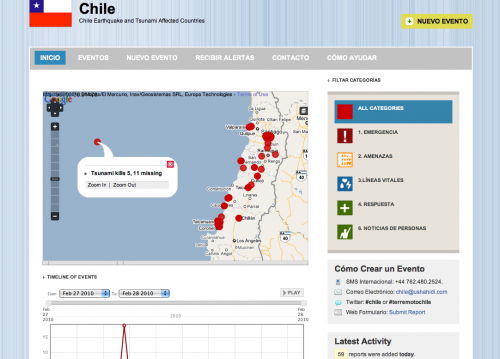Our dedicated team of volunteers have mapped over 100 reports including many pictures, and this less than 48 hours after the deployment of the Ushahidi-Chile platform. During this time, I worked directly with colleagues from Columbia University's School of International and Public Affairs (SIPA), my alma mater, to help them set up their own Situation Room and take the lead on Ushahidi-Chile. Our partners Digital Democracy (D2) once again played an instrumental role and provided the SIPA Team with the full Ushahidi training they needed. Many thanks to both!
